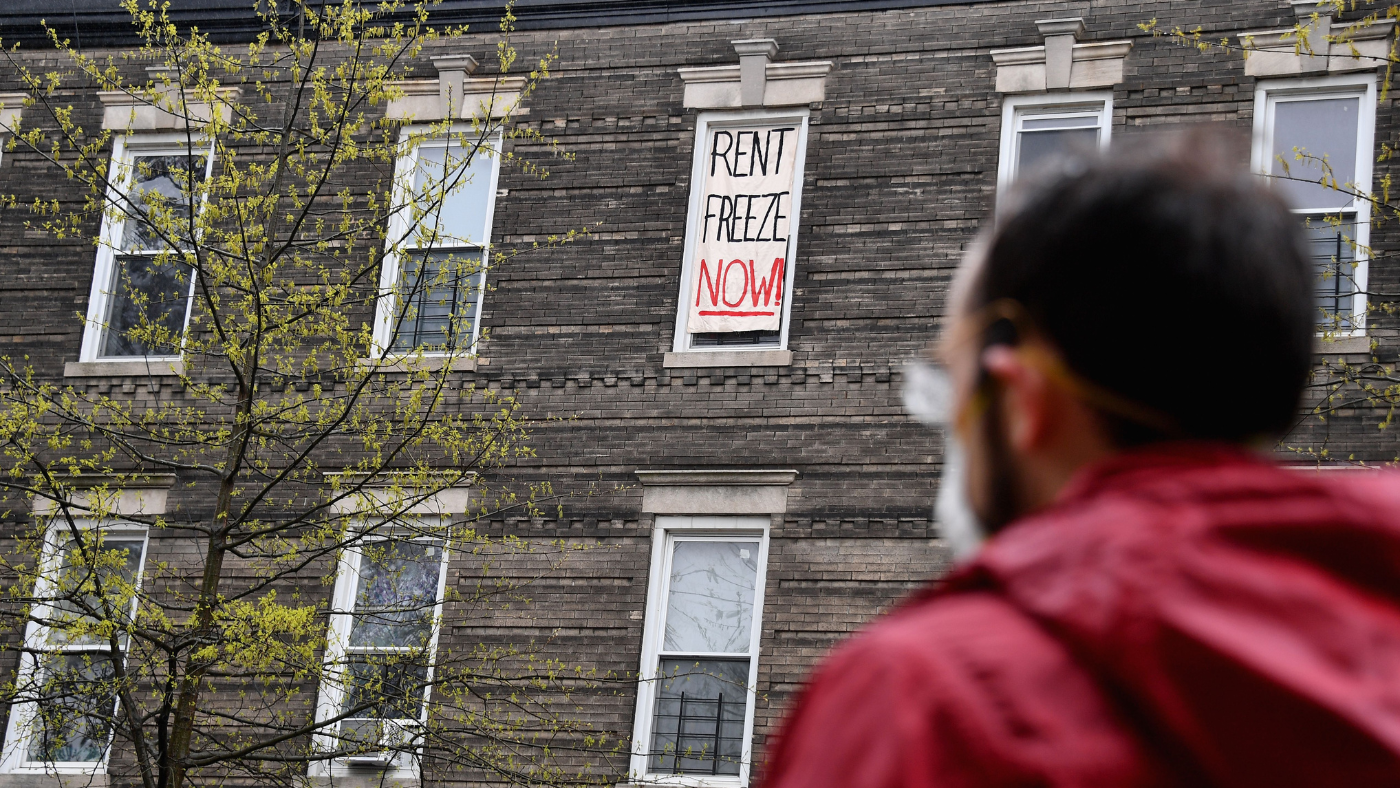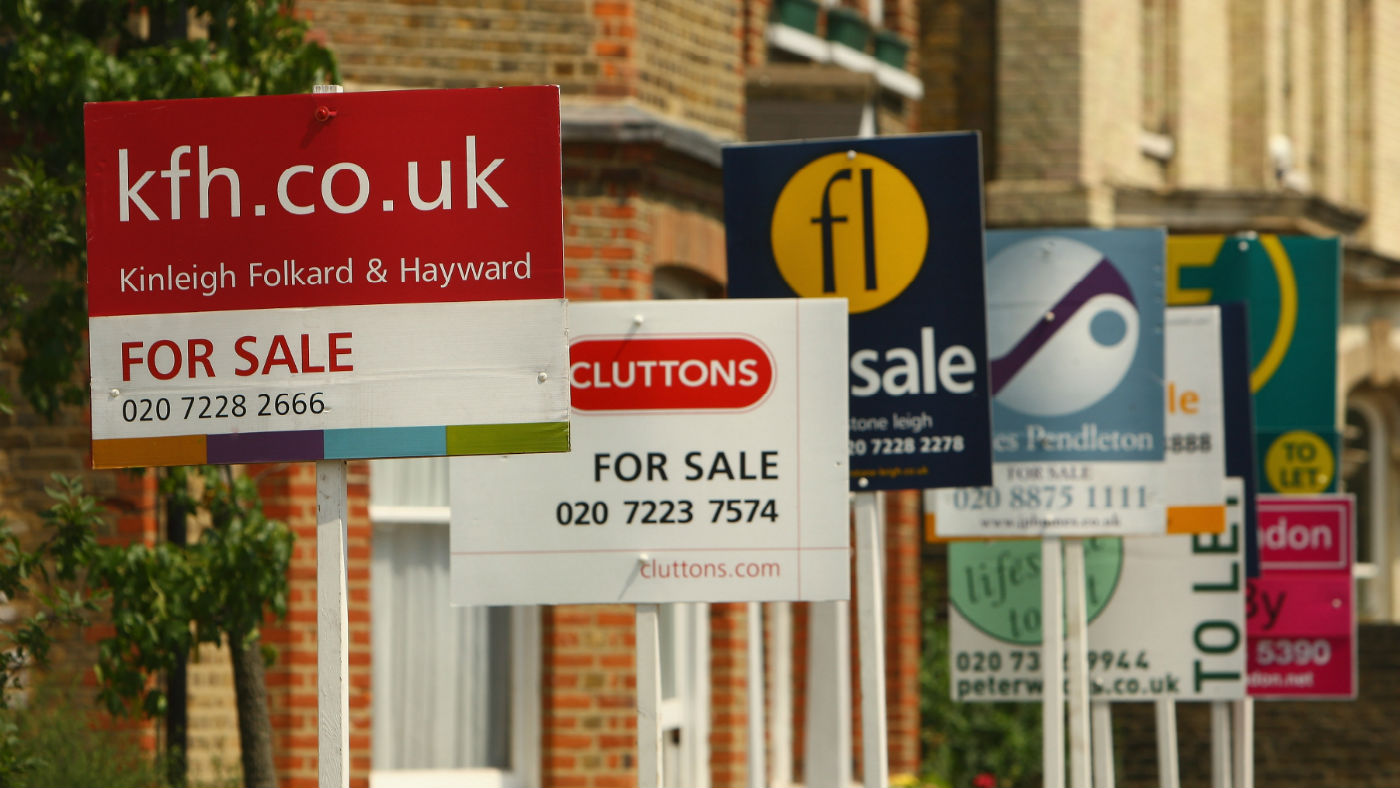Should housing be nationalised?
Amid a nationwide housing crisis, radical solutions are starting to emerge

A free daily email with the biggest news stories of the day – and the best features from TheWeek.com
You are now subscribed
Your newsletter sign-up was successful
Long-neglected by successive governments, Britain’s housing crisis is fast becoming one of the most pressing political issues facing the country.
In a belated attempt to address the dearth of affordable houses, Chancellor Philip Hammond pledged to increase the construction of new homes to 300,000 a year on average by the mid-2020s, in what was touted as the “biggest annual increase in housing supply since 1970”.
To do that, he said in his 2017 Budget, the government would provide at least £44bn of capital funding, loans and guarantees to support the UK’s housing market over the next five years.
The Week
Escape your echo chamber. Get the facts behind the news, plus analysis from multiple perspectives.

Sign up for The Week's Free Newsletters
From our morning news briefing to a weekly Good News Newsletter, get the best of The Week delivered directly to your inbox.
From our morning news briefing to a weekly Good News Newsletter, get the best of The Week delivered directly to your inbox.
The measures followed calls from MPs across the political spectrum, including some senior cabinet members, “to break with austerity to fund a massive expansion in housebuilding”, reported The Guardian.
“Unfortunately, there are a lot of holes in this vision,” wrote John Harris in The Guardian last year; “not least the Tories’ underlying belief that the only homes worth talking about should be privately bought and sold, reflected in the paltry amount of supposedly social housing added to England’s stock in the same period”.
In 2017, official figures revealed the number of households in England in emergency accommodation hit 77,240, an increase of 60% since March 2011.
Meanwhile, the median price paid for residential property increased by 259% between 1997 and 2016, as the median individual annual earnings increased by just 68% in the same time period.
A free daily email with the biggest news stories of the day – and the best features from TheWeek.com
This led to a call for more radical solutions to solve the growing housing shortage.
Last year, Labour MP Lloyd Russell-Moyle suggested homeowners selling up should be compelled to offer their properties to councils first as part of efforts to bring housing under state control.
Addressing an anti-austerity rally, the MP for Brighton Kemptown went further “and revealed his party will order mass compulsory purchases of former council homes sold off under the Tories’ Right To Buy scheme”, The Sun reported.
The newspaper said: “The ‘right to buy’ revolution, letting people buy their council houses, was the bedrock of Margaret Thatcher’s premiership, but under the alarming vision of this MP, the clock would be turned back to an era of mass state ownership of property that has chilling echoes of the former Soviet Union.”
Although it was pilloried in the press, the idea of re-nationalising the UK’s housing stock found some support in the business community.
Chris Blythe, the chief executive of the Chartered Institute of Building, called for the creation of a “national housing body”, to take responsibility for matching housing demand with supply across the country.
Given the ongoing failure of the private market, such a state-led body would have strategic control of planning, and be a national housing developer empowered to provide low-cost, high-quality homes, Blythe wrote in Construction Research & Innovation.
Calling affordable housing a “precious national resource”, he went on to say the UK should follow its own example with state provision of education and healthcare, and treat housing as a basic entitlement.
While opposition to such a bold move remains strong in the UK, on the continent citizens are taking matters into their own hands.
Amid rocketing rents in Germany (rising 20% in Berlin in 2017 alone), a civic campaign called Deutsche Wohnen & Co Enteignen has been set up. Next month, they will start collecting signatures, with the aim of holding a referendum that could lead to the renationalisation of up to 200,000 council flats, which were previously sold to corporate landlords.
Surprisingly, more than 50% of Berliners consider it reasonable and, “if successful, the move could provide a legal precedent for other cities to call for nationalisaton as a modern and legitimate solution to their housing crises”, writes Joanna Kusiak, a research fellow in urban studies at the University of Cambridge.
Writing in The Conversation, she says: “It could also prompt changes to international law, empowering legislation initiatives that see housing as a human right, as a strategic resource or as global commons.”
-
 Local elections 2026: where are they and who is expected to win?
Local elections 2026: where are they and who is expected to win?The Explainer Labour is braced for heavy losses and U-turn on postponing some council elections hasn’t helped the party’s prospects
-
 6 of the world’s most accessible destinations
6 of the world’s most accessible destinationsThe Week Recommends Experience all of Berlin, Singapore and Sydney
-
 How the FCC’s ‘equal time’ rule works
How the FCC’s ‘equal time’ rule worksIn the Spotlight The law is at the heart of the Colbert-CBS conflict
-
 The end of leasehold flats
The end of leasehold flatsThe Explainer Government reforms will give homeowners greater control under a move to the commonhold system
-
 Why baby boomers and retirees are ditching Florida for Appalachia
Why baby boomers and retirees are ditching Florida for AppalachiaThe Explainer The shift is causing a population spike in many rural Appalachian communities
-
 The pros and cons of new-builds
The pros and cons of new-buildsPros and Cons More options for first-time buyers and lower bills are offset by ‘new-build premium’ and the chance of delays
-
 How the Grenfell tragedy changed the UK
How the Grenfell tragedy changed the UKfeature Six years on since the government vowed to ‘learn lessons’ has sufficient progress been made?
-
 Pros and cons of building on the green belt
Pros and cons of building on the green beltPros and Cons More housing and lower house prices must be weighed against urban sprawl and conservation concerns
-
 The pros and cons of rent freezes
The pros and cons of rent freezesPros and Cons Proponents say rent controls provide stability for tenants, but critics claim they won’t fix the housing crisis
-
 The cooling housing market: what happens next for UK property?
The cooling housing market: what happens next for UK property?In the Spotlight The end of the latest boom is in sight. What kind of landing can we expect?
-
 Shared ownership explained: how the home buying scheme works
Shared ownership explained: how the home buying scheme worksPros and Cons Getting on the property ladder is being made more affordable – but there are downsides